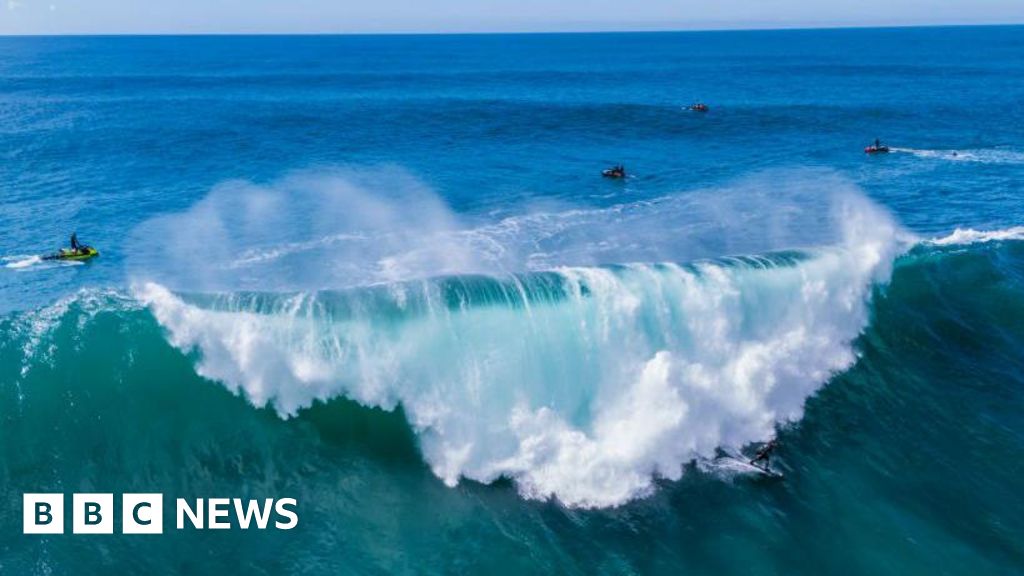Orcas Hunt Pygmy Blue Whale in Gripping Display at Bremer Canyon

Each summer, a remarkable natural phenomenon unfolds at Bremer Canyon, located off the southern coast of Western Australia. This area, characterized by its deep underwater canyons, transforms into a vibrant feeding ground for a variety of marine predators. Among these predators are sharks, pilot whales, beaked whales, and the highly intelligent and social orcas. The Bremer Canyon has garnered attention as a popular whale-watching destination, attracting both tourists and researchers eager to witness the majestic creatures in their natural habitat.
This week, however, a tour boat carrying eager observers and scientists was treated to a visceral and dramatic display of natures raw power as a pod of over 60 orcas launched a coordinated hunt. On Monday, these apex predators set their sights on a pygmy blue whale measuring approximately 59 feet (18 meters) long, an event that was reported by Australias ABC. The scene, which unfolded in the waters of Bremer Canyon, was both breathtaking and heartbreaking, illustrating the brutal realities of life in the wild.
Witnesses on the boat captured the harrowing encounter on camera, and while many spectators experienced a mix of awe and sorrow, it served as a stark reminder of the orcas role in the marine ecosystem. It is noteworthy that this event marked only the fourth documented instance of orcas hunting a blue whale in Bremer Canyon, making it a significant occurrence for researchers and marine enthusiasts alike.
In a post shared on social media, Naturaliste Charters Whale Watching described the event, stating, The intense ordeal lasted less than 40 minutes from when we first saw the blue at the surface to when the battle was over. As the blue whales fate was sealed, orcas celebrated with breaches and tail slaps. They emphasized that such displays highlight the orcas' nature as apex predators, emphasizing the natural order of marine life.
Yet, beyond the thrill of the hunt, there lies a more poignant aspect to this spectacle: pygmy blue whales are classified as endangered. The sight of so many orcas overwhelming a single whale can evoke strong emotional responses, particularly given the ongoing threats to various marine species. Jennah Tucker, a marine biologist with Naturaliste Charters who witnessed the event firsthand, expressed her mixed feelings about the hunt. Were all still pretty shell shocked, she shared with ABC. We definitely do as much as we can to not be involved and to have no interference, but its a very difficult thing to watch; it can be very brutal. Tucker recounted how nearly 30 orcas worked together to subdue the fleeing pygmy blue whale.
Despite the brutality of the event, she remarked on the privilege of being able to observe such a rare occurrence, acknowledging the emotional turmoil it stirred within her and her colleagues. It was very emotional, but thats nature; it was quite a privilege to witness the event, she noted. During the hunt, the researchers also identified five distinct orca family groups, including many young orcas, one of which was just a month old, highlighting the social structure and family dynamics within these pods.
While popular media often portrays sharks as the ultimate marine villains, orcas hold the title of the ocean's top predators, roaming in pods across every ocean. Despite their nickname killer whales, orcas are classified as members of the dolphin family. The term killer whale is derived from their impressive hunting skills, often targeting larger whale species such as the blue whale.
Although the bloody scene was difficult for many to stomach, it is essential to understand that the orcas were not engaging in mindless violence. Rather, they were acting in accordance with the natural instincts that have defined their species for millennia. This event serves as a powerful reminder of the circle of life and the complex interactions that occur within marine ecosystems.



























